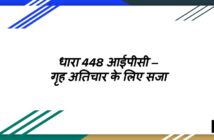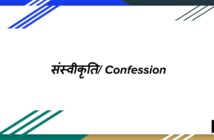Lok Adalat is a highly used mechanism to resolve disputes in recent times. Lok Adalat has disposed of about 1,27,87,329 cases in 2021. Many pending matters before the court caused unprecedented economic, physical, and psychological hardship to the people. With the advancement of technology, e-Lok Adalat has emerged as a new e-way for effectively disposing of cases. This article will discuss what Lok Adalat is, its features, functions, and advantages, how cases are referred to Lok Adalat, and what e-Lok Adalat is.
What is the Lok Adalat?
Lok Adalat means “People’s Court”. It is a legal system for conciliation and negotiation of disputes. The First Lok Adalat was set up in Gujarat on 14th March 1982. The Supreme Court has defined the institution of Lok Adalat as an old adjudication system that has prevailed since ancient India and is effectively practised even during the modern era. Lok Adalat is based on Gandhian principles. However, the courts are overburdened with cases, and it takes years to resolve petty issues. At such times moving to Lok Adalat is an intelligent step.
National Legal Service Authority (NALSA) and other Legal Service Authority conduct Lok Adalat. It is an Alternate Dispute Resolution (ADR) mechanism aiming to deliver cheap, informal, and expeditious justice to the people. It is a mechanism where pending disputes, litigations, or pre-litigation disputes are settled between parties amicably.
It is governed under the Legal Services Authorities Act, 1987. The award of the Lok Adalat is final and binding on all the parties, which cannot be appealed before any court. However, suppose the parties are not satisfied with the award. In that case, they can exercise their right to litigate by filing a case before a jurisdiction court.
The person deciding the matter in Lok Adalats are called Members of Lok Adalats. They act as statutory conciliators and cannot act as a judiciary. The Members of Lok Adalats cannot force any party to settle the dispute directly or indirectly. They can only persuade the parties to resolve the dispute amicably. The Members of Lok Adalat decide the matter only when the parties approach it. The members assist the parties to the dispute to arrive at an amicable solution. They decide the matters taking into consideration the case’s circumstances and the parties’ wishes.
Matters in Lok Adalat are decided free of cost. There are no court fees involved. Even if the court fees have been paid in pending litigation cases, the same can be refunded to the respective parties.
What are the features of Lok Adalat?
The main features of Lok Adalat are –
1. No court fees.
2. The parties can interact with the judge directly through their counsel.
3. It enables informal and speedy trials.
4. The award of the Lok Adalat is binding, non-appealable, and has the status of a decree of a Civil Court.
What are the Levels and Composition of Lok Adalat?
Levels of Lok Adalat |
Constituted by |
Comprising |
State Authority Level |
State Legal Services Authority | A sitting or retired judge of the High Court or judicial officer or any one or both members of the legal profession or social worker*.
|
High Court Level |
Secretary of High Court Legal Services Committee | A sitting or retired judge of the High Court and any one or both members of the legal profession or social worker*. |
District Level |
Secretary of District Legal Service Authority | Sitting or retired judicial officer and any one or both member of the legal profession; and/or social worker* or a para-legal activist, esp. woman. |
Taluka Level |
Secretary of the Taluk Legal Services Committee | Sitting or retired judicial offer and any one or both of either member of the legal profession; and/or social worker* or para-legal activist, esp. woman. |
*social worker who works to uplift the weaker sections of society and is interested in implementing legal service schemes and programs.
What are the types of Lok Adalat?
The Lok Adalats are of four types, namely;
- National Lok Adalat – National Lok Adalat is held monthly on a specific subject matter. It is held throughout the country on a single day, in all courts from the Supreme Court to the Taluk level. In National Lok Adalat large number of cases are disposed of.
- Permanent Lok Adalat – Permanent Lok Adalat is governed under Section 22-B of the Legal Service Authorities Act, 1987. It is a permanent body comprising of a Chairman and two members. It aims at providing a pre-litigation mechanism for settlement and conciliation of disputes relating to Public Utility Services such as telegraph, postal, transport, etc. If the parties fail to settle the dispute, the Permanent Lok Adalat has the jurisdiction to decide the matter; provided that it is not a compoundable offence. Its jurisdiction is up to Rs. 10 Lakhs.
- Mobile Lok Adalat – In this type, a Lok Adalat is organized in different parts of the country. The mobile Lok Adalat travels from one place to another to resolve disputes through its mechanism.
- E-Lok Adalat – E-Lok Adalat is an online platform for dispute resolution of Cisco Webex or any other platform prescribed by the Delhi State Legal Service Authority. Here meetings are conducted through Video conferences. This type of Lok Adalat gained momentum during the pandemic.
What is the primary purpose of Lok Adalat?
The primary purpose of Lok Adalat is –
- to deliver justice to all effectively and speedily.
- reducing the burden of the Court due to pending litigations.
- attract people to opt for alternate dispute resolution mechanisms and settle their dispute out of court.
- to create awareness among people regarding the legal sanctity of Lok Adalat and the conciliatory mode of dispute settlement.
- to empower people to participate in the justice delivery system.
Which type of cases are decided in Lok Adalat?
Lok Adalat refers to the following type of cases:
-
- Cases that are pending before any court;
- Any dispute at a pre-litigation stage i.e.; that was not filed before any court but is likely to be filed in the Court;
- Only compoundable offence.
Lok Adalats can take up workmen’s compensation cases, land acquisition cases, matrimonial/family disputes, labour disputes, bank recovery matters, criminal (compoundable offences) cases, etc.
What are the powers of Lok Adalat?
- The Lok Adalat has the same power as a Civil Court under the Code of Civil Procedure, 1908, and also for criminal matters for the purpose of the Code of Criminal Procedure, 1973.
- All the Lok Adalat proceedings shall be treated as judicial proceedings within the meaning of the Indian Penal Code, 1860.
- It has the power to decide the procedure for settling disputes.
- An award of Lok Adalat shall be binding and is treated as a decree of the Civil Court or any other court.
How to get the case referred to Lok Adalat for Settlement?
1) Cases that are pending before any court can be referred to the Lok Adalat if-
· the parties mutually agree to settle the dispute in Lok Adalat; or
· one of the parties makes an application before the Lok Adalat for settlement of the dispute; or
· the Court is satisfied that the dispute should be settled through Lok Adalat.
2) Cases that are at the pre-litigation stage can be referred to Lok Adalat if –
The matter is referred to the Lok Adalat by the State Legal Services Authority or District Legal Service Authority upon receiving an application by one of the parties to the dispute at a pre-litigation stage.
What is the advantage of Lok Adalat?
Referring a matter to the Lok Adalat has many benefits attached. Some of these are as follows;
- No court fees are required. Suppose the parties have paid court fees during litigation. In that case, they will be refunded if the dispute is referred to Lok Adalat.
- There is flexibility in procedure and speedy trial of the cases.
- The parties to the disputes can easily approach and interact with the Members of Lok Adalat or judges through their counsel, which cannot be done in regular courts.
- There is no delay in the dispute settlement as the award of the Lok Adalat is final, binding, and non-appealable.
What is e-Lok Adalat?
E-Lok Adalat came into the picture during the pandemic when the Court could not function due to lockdown. It effectively resolves disputes quickly and effectively and reduces the burden of pending cases before the courts.
The main objective of organizing e-Lok Adalat is to resolve disputes effectively from the comfort of their homes, thereby reducing the litigants’ mental stress.
The e-Lok Adalat can take the matters at pre-litigation as well as civil cases, matrimonial matters, criminal compoundable matters, MACT Disputes, Electricity Acts disputes, Civil recovery matters, etc.
E-Lok Adalat is conducted through an online platform of Cisco Webex or any other Delhi State Legal Service Authority platform after consulting its Hon’ble Executive Chairperson.
The composition of e-Lok Adalat is the same as Lok Adalat.
The parties and their respective counsel are notified about the date and time for appearance through email or WhatsApp. The Judicial assistant (reader) of the judge or magistrate presiding over the e-Lok Adalat shall send a URL (link) of the platform conducting e-Lok Adalat, which shall contain the manner of joining the meeting, password, and such other details as may be required. The notification will be given at least three days before the Scheduled e-Lok Adalat.
The members of e-Lok Adalat shall assist the parties impartially and independently to resolve the dispute amicably.
E-Lok Adalat has no power to adjudicate the dispute like a regular court. It is the responsibility of e-Lok Adalat in an appropriate manner, taking into consideration the circumstances of the matter and wish of the parties.
The award of the e-Lok Adalat will be sent to the parties and their respective counsel through email or WhatsApp. In addition, the digital signature or e-signature of the parties shall be entered on the compromise agreed upon by the parties.
Conclusion
Lok Adalat means people’s Court. It is one of the Alternate Dispute Resolution mechanisms. The parties can either mutually or single handily decides to refer the dispute to Lok Adalat. The Lok Adalat can take matters pending before the Court or at the pre-litigation stage. There are no court fees for Lok Adalat. It enables common people to resolve disputes amicably, speedily, and flexibly. The award of Lok Adalat is final and binding on the parties to the dispute. The Lok Adalat can resolve any offence except non-compoundable offence. E-Lok Adalat is a new method of effectively resolving disputes through an online platform. E-Lok Adalat has helped the Court and litigants to decide on pending litigation during the pandemic.

